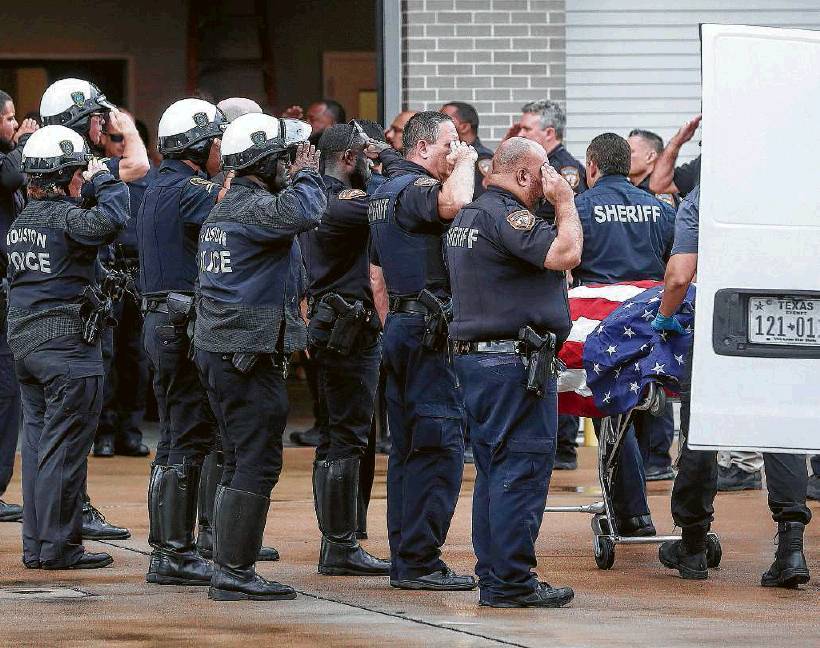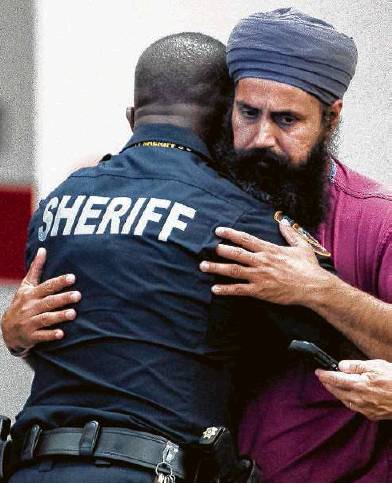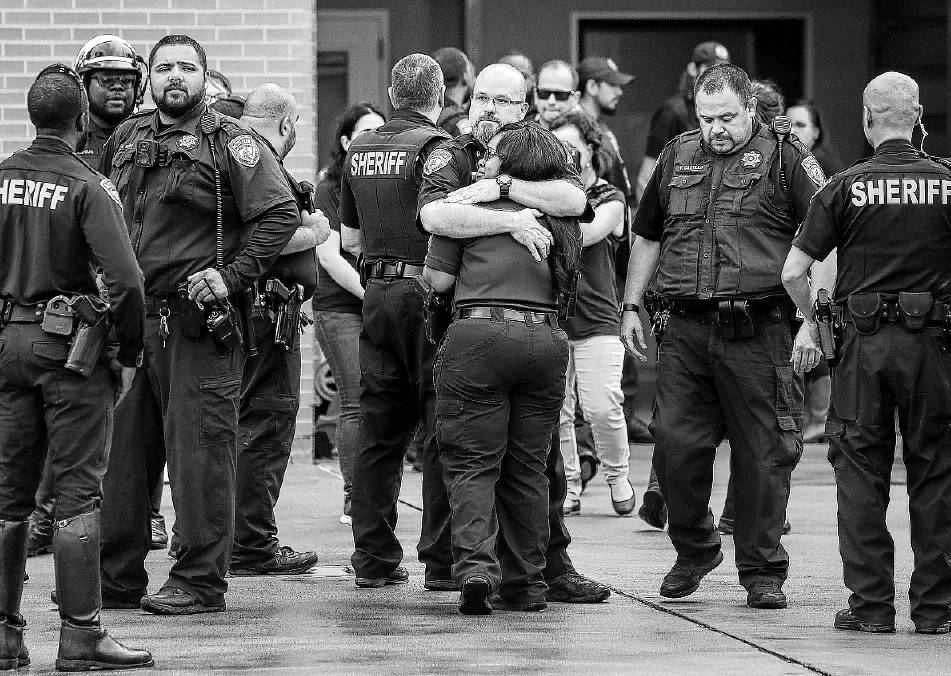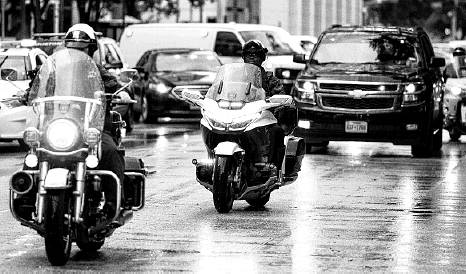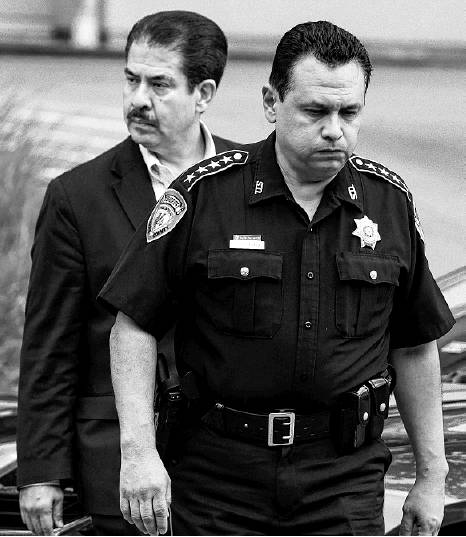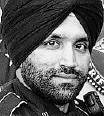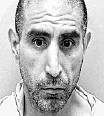Sheriff’s deputy killed in traffic stop
Gunman shoots county’s first Sikh officer several times in head
By Robert Downen and Dylan McGuinness STAFF WRITERS
A Harris County Sheriff’s Office deputy was gunned down during a midday traffic stop on Friday, a decade after becoming the force’s first Sikh and pushing for a historic expansion of religious rights in the department.
Sandeep Dhaliwal, 42, pulled over a vehicle around 12:45 p.m. in the 14800 block of Willancy Court in the Cypress area. Harris County Sheriff’s Office Maj. Mike Lee said dashcam video shows Dhaliwal and the suspect, still in his car, having a conversation with no sign of confrontation. A few seconds after Dhaliwal returned to his squad car, the suspect ran up and shot him in the head multiple times, Lee said. Dhaliwal was airlifted to the hospital, where he died.
Robert Solis, 47, was charged late Friday with capital murder in the case.
Dhaliwal was the county’s first Sikh deputy when he joined the force a decade ago, and he became a national figure after persuading the department to allow him to wear religious attire and grow a beard while on patrol.
“He was a hero, a trailblazer,” Sheriff Ed Gonzalez said of Dhaliwal, whom he considered a close friend. “There are no words to speak to how heartbroken we are, how devastated.”
A woman who was outside gardening heard the shot and saw the suspect run to a car. Lee said the suspect then went to a store nearby. After a brief search, authorities detained Solis, who has a criminal record that includes convictions for aggravated assault with a deadly weapon, aggravated kidnapping and driving while intoxicated.
Dhaliwal, a father of three young children, began his career in law enforcement a decade ago. Then-Sheriff Adrian Garcia sought at the time to strengthen the department’s relationship with the Sikh community after deputies mishandled a domestic violence call at a Sikh family’s home.
Then-spokesman Alan Bernstein, who now works for Mayor Sylvester Turner, said Garcia met with Sikh leaders and encouraged Sikhs to apply to the department. Sikhism is centered around peace, equality and “love-inspired service” — ideals that Dhaliwal believed were central to police work. His father was a police officer in India before the family moved to America.
He decided to leave what others described as a “lucrative” trucking job to become a civilian detention officer. He later earned his peace officer’s license and became the first Sikh deputy in Harris County.
“As aSikh American, I felt the need to represent the Sikh community in law enforcement,” Dhaliwal told NBC News in 2015. “Serving in the police force is natural to us, as Sikhs value service.”
Yet as an observant Sikh, Dhaliwal believed he must grow out his beard and wear a turban, and so successfully pushed Garcia to implement a religious accommodation policy that allowed him to do so.
Advocates said Dhaliwal sent a powerful message to religious minority groups, particularly the roughly 500,000 Sikhs living in America: They can serve their communities without compromising their faith.
Dhaliwal embraced the puzzled looks and questions from the public that his appearance drew, Bernstein said.
“Sandeep said, “I’m going to be a conversation piece,’” he recalled. “It will be a way of opening up a conversation so I can explain to people what Sikhs are all about.”
Harris County residents and Sikh groups from around the nation posted photos of Dhaliwal with their children, and others, including Turner, recounted him as emblematic of America’s highest ideals.
“He was a walking lesson in tolerance and understanding,” Turner said.
Dhaliwal was also active at his Gurudwara, and his house of worship held a special ceremony after he was deputized.
As news of the shooting spread, that same community met to pray for his recovery. Soon, they were mourning.
“He was very, very, very important,” Sampuran Singh said as he fought back tears. “He was always willing to do what the community needed him to do.”
Others remembered him as a quiet but confident leader, not necessarily outspoken but carrying “a big stick.”
He led youth services at the temple and before his death was planning to form a bus service for elderly Sikh members who couldn’t get transportation to the temple, Singh said. But he also had ambitions in the police force.
“He wanted to get to that point where he could be the sheriff himself,” said Paul Singh. “It looked like he was made for that.”
Christina Garza, a former media representative for the sheriff’s office, similarly recalled his ambition in law enforcement.
On Friday, she sobbed as she scrolled through texts from her friend of a decade.
“I’m devastated,” she said. “He did not deserve this. He was the kindest person you would ever meet. He called everybody friend, ‘My friend. My friend.’ ”
When Garza later left the department to work for the Houston FBI, she sent him a departing message letting him know that she admired him, his dedication and his courage.
She called him a “rock star” in several other texts, and at one point he responded: “No rock star. Still a cop and will always be a cop.”
Jay R. Jordan, Zach Despart and Gabrielle Banks contributed to this report. robert.downen@chron.com dylan.mcguinness@chron.com
